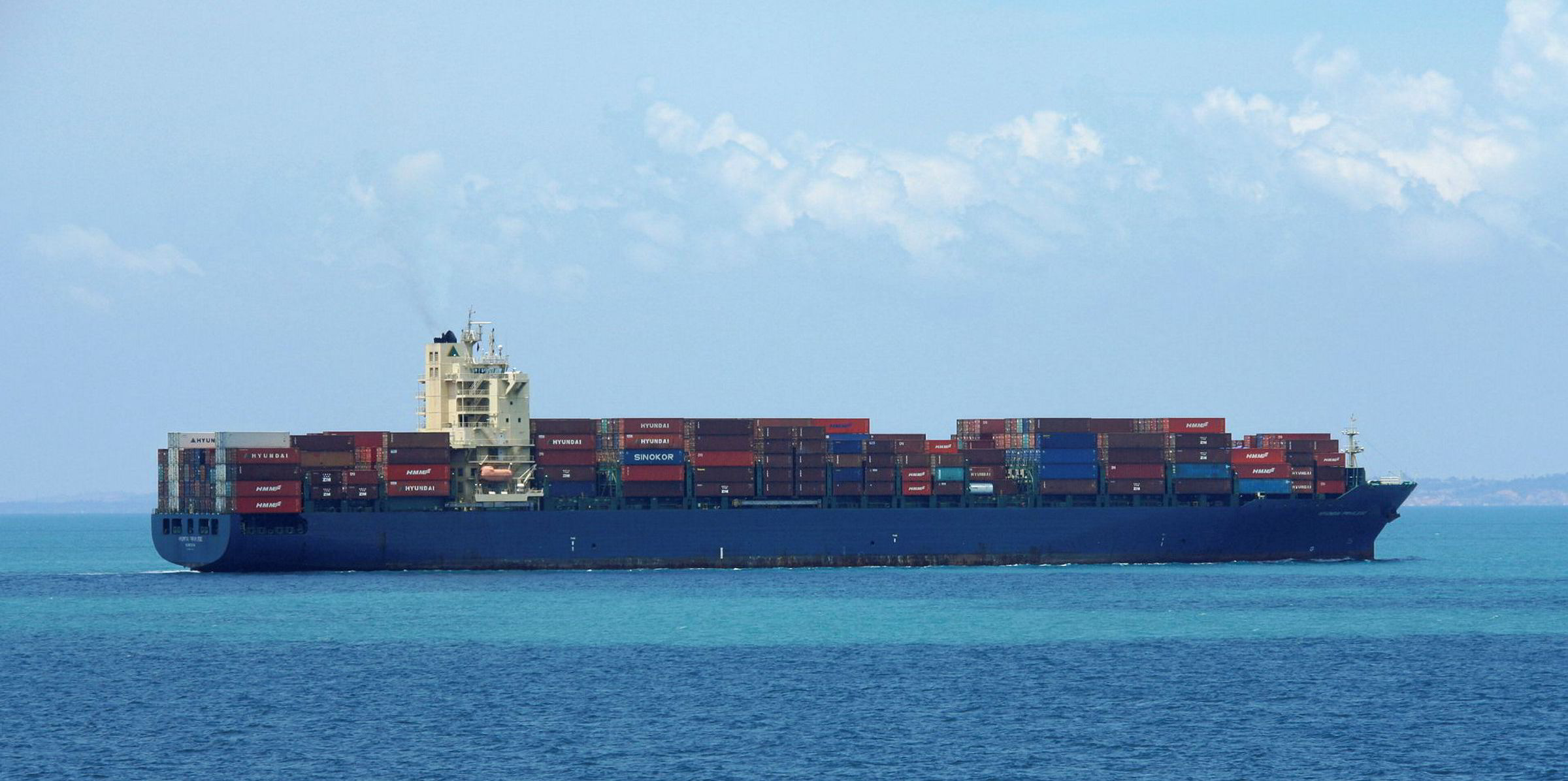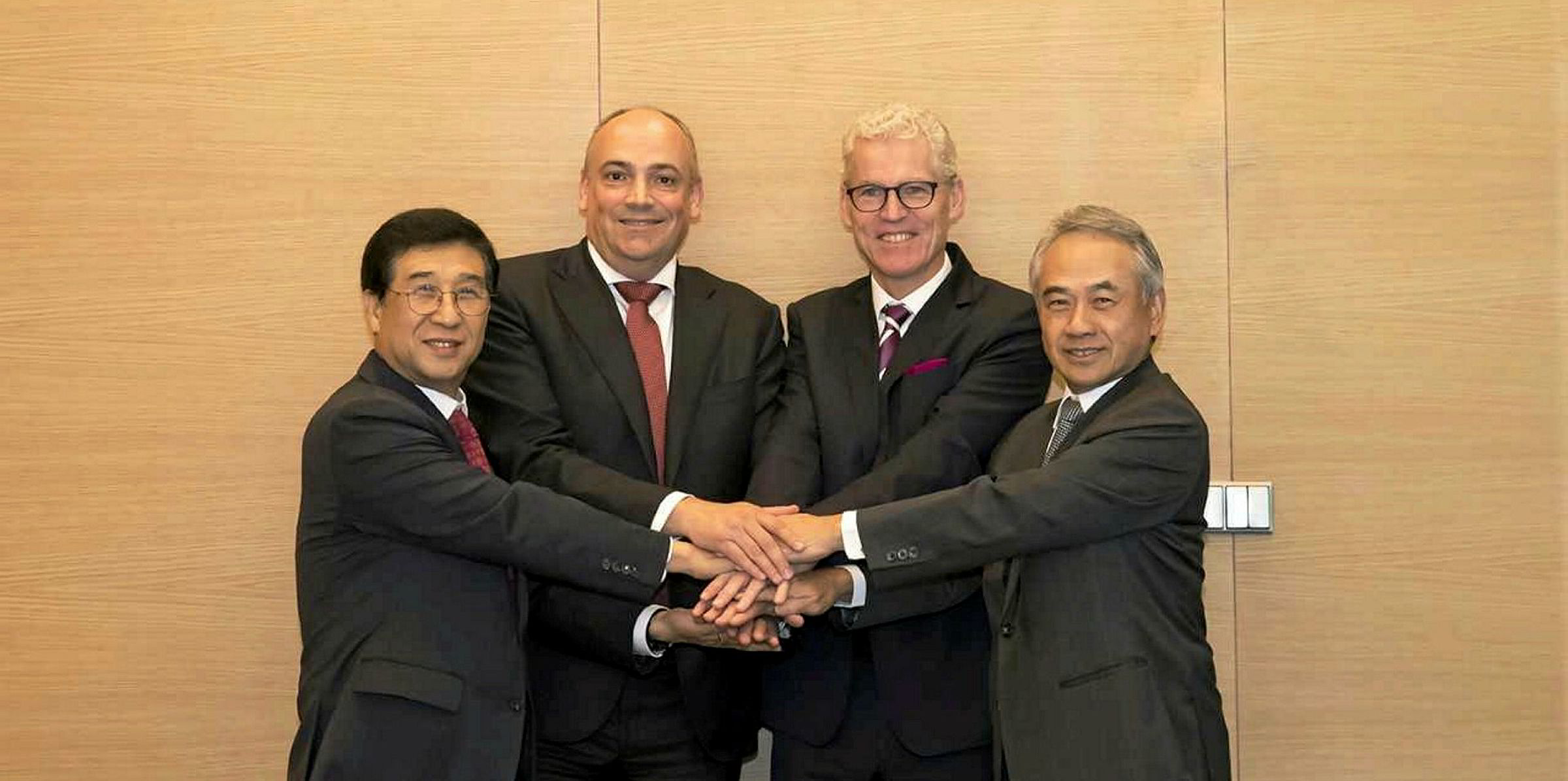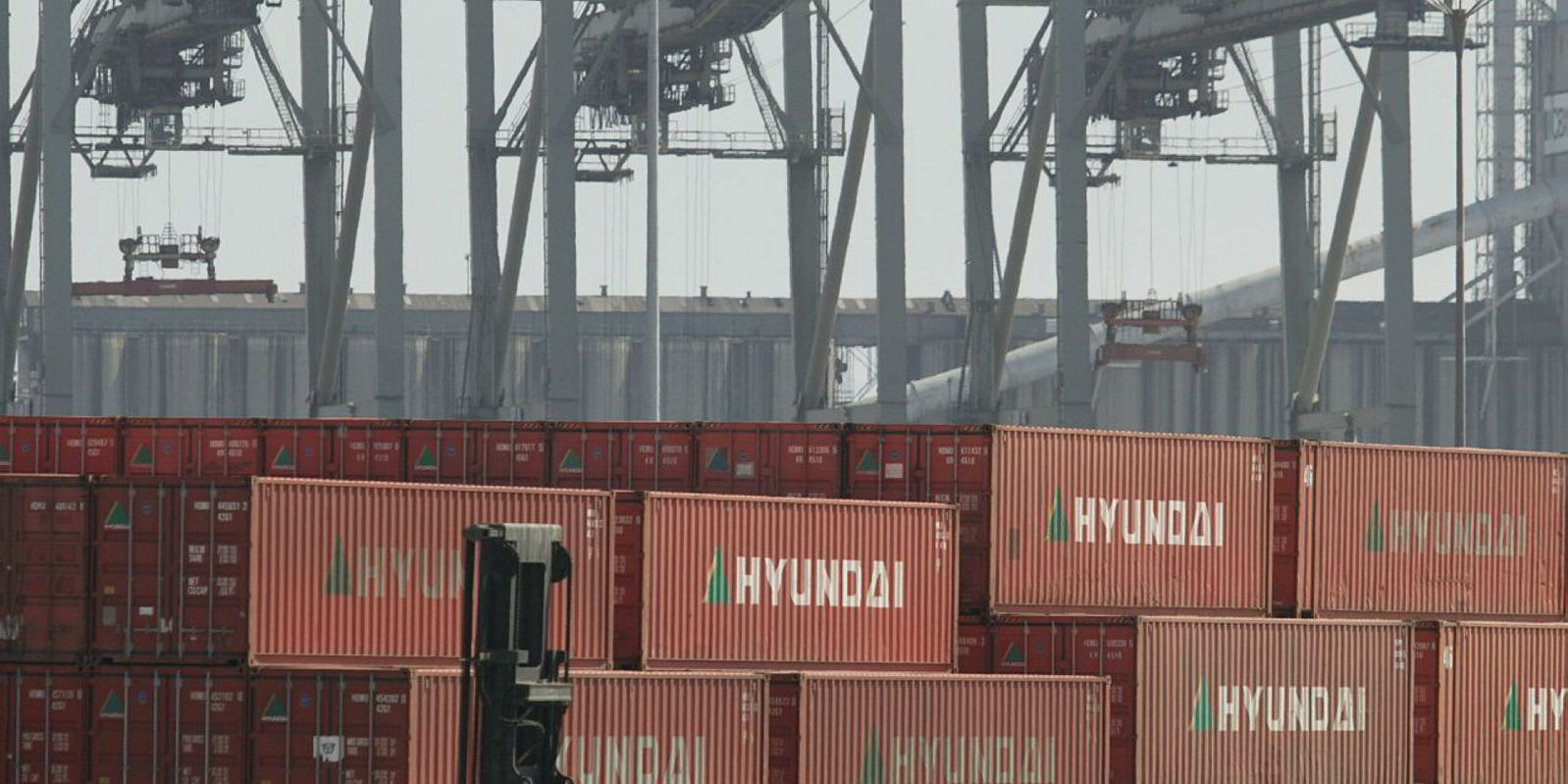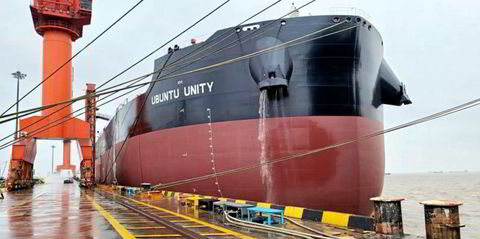Hyundai Merchant Marine (HMM) is terminating its stand-alone Asia-Europe service.
The South Korean operator has done so ahead of a new partnership it intends to form next April with the member lines of THE Alliance.
The decision will release 13 containerships of between 4,700 teu and 5,400 teu from the Asia-Europe trade.
The vessels are presently deployed in the AEX service, which HMM established in May 2018.
The final sailing involving the last of those vessels, the 5,443-teu Hyundai Confidence (built 2003), will take place on 18 August.
HMM will replace its AEX service by taking slots in four of five Asia-Europe services operated by its partners in THE Alliance.
New partnership
In July, HMM announced it would be incorporated as the fourth member of THE Alliance from 1 April next year, alongside partners Hapag-Lloyd, Ocean Network Express and Yang Ming Marine Transport.
But it will maintain its existing vessel sharing agreement with Maersk Line and Mediterranean Shipping Co through to next March.
HMM raised eyebrows in April 2018 with a decision to re-enter the Asia to North Europe trades as a vessel operator.
It re-established a stand-alone service using the smallest containerships in the trade using both owned and chartered ships.
The sub-5,000-teu containerships lacked the economies of scale of larger vessels that ply the route, where the average size is 15,000 teu.
But HMM will reenter the service again with its own larger vessels from the first quarter of 2020, when it starts to take delivery of 12 newbuildings of 23,000 teu each from South Korean shipyards.
Rates strengthen
HMM’s decision to cease its own Asia-Europe trade comes with freight rates beginning to rise, as carriers restrict capacity during peak season.
Freight rates on the Shanghai-Rotterdam route increased $135, or 9.1%, to stand at $1,623 per 40-foot (feu) container, according to the World Container Index.
Shipping lines are issuing notices saying every single vessel is overbooked, according to UK-based Westbound Logistics.
That was leading to delays of up to three weeks, which is "double the transit time in some cases”.
“The situation is set to get worse,” it said.






